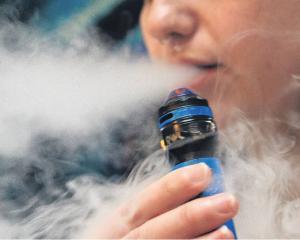A ''series of judgement and communication failures'' occurred in the case of a 2-year-old girl who died in Dunedin Hospital's emergency department, which had discharged her twice previously without following correct process, the Health and Disability Commissioner has found.
In a written decision released today, the commissioner found against the health board, the consultant, and a registered nurse at Telehealth. They breached the patient rights code by failing to provide services with reasonable care and skill.
A junior doctor who discharged the little girl told the commissioner he felt unable to challenge the supervising consultant. The commissioner has criticised the doctor over the standard of his documentation, and failing to advocate for his patient, but stopped short of finding him in breach of the code.
Identified as Miss A in the report, the girl was aged two years and 10 months when she died in 2013 due to cerebellar herniation secondary to sepsis.
At that time she had no known medical problems, but an autopsy discovered the presence of acute myeloid leukaemia.
The emergency department is identified only as a public hospital at Southern District Health Board, but it is understood to be Dunedin Hospital.
The girl was taken to the emergency department with a cough, runny nose, and a fever, shortly after midnight on a Friday.
She was given paracetamol and ibuprofen, and discharged at 3.35am with a reduced temperature and lower heart rate. The doctor requested the paediatric department call the family to follow up, but this did not occur.
The next day she had diarrhoea, and refused food but continued to drink water. Her mother took her back to the ED. She was triaged to be seen within 10 minutes. The paediatric registrar was not notified, despite this being required under an agreement between the ED and the paediatric department.
Miss A's temperature was 37.3degC, her heart rate was between 170 and 175 beats per minute, and her respiratory rate was 44 breaths per minute.
A house officer, identified as Dr C in the report, assessed the little girl and and discussed her case with the consultant.
Dr C did not document the discharge information provided to Miss A's parents, and did not request a follow-up telephone call from the paediatric department.
The accounts of the junior doctor and the consultant differ in respect of what was discussed, the commissioner noted.
``Dr C told HDC that Miss A's heart rate and respiratory rate concerned him. However, I note that this concern is not reflected in his documentation. Dr C said that he thought further investigations . . . were warranted but he did not challenge Dr B's decision, as it was not then his practice to challenge a consultant, and it is not easy for a junior doctor to challenge a senior doctor.
``Irrespective of any difficulty, part of the privilege of registration as a doctor is accepting responsibility for the care of patients.''
The next day Miss A's temperature had increased and her mother called the ED and was transferred to the Telehealth national service.
She spoke with a registered nurse at Telehealth, and her daughter's breathing could be heard throughout the call. Ms A ended the call after three minutes and 12 seconds, telling the nurse she was ``going to go''.
The nurse did not call back Ms A.
About 1pm the same day Miss A stopped breathing and was taken to the ED, where attempts to resuscitate her were unsuccessful.
Southern District Health Board staff had ``inappropriately'' discharged Miss A on her second visit to the ED without taking sufficient steps to consider her history and investigate the cause of her illness.
On two occasions staff failed to provide adequate discharge information to the child's family, and SDHB's system for paediatric follow-up was not sufficiently robust to ensure follow-up would occur as requested.
The board failed to encourage a culture where staff felt comfortable questioning or challenging decisions; and lacked a multidisciplinary approach to Miss A's care, the commissioner found.
The hospital had sufficient information to provide the child with appropriate care, but a ``series of judgement and communication failures'' meant it did not do so.
Of the Telehealth nurse, the commissioner found he did not provide appropriate advice, and should have told the child's mother to take her back to the ED. He failed to take appropriate steps when she ended the call.
The commissioner's recommendations to the DHB included conducting an audit of re-presentations to the ED within 48 hours of discharge among patients under 5 to check that proper procedures were followed. The commissioner recommended an independent review of staff rosters to ensure junior staff received appropriate supervision.
Two emergency department doctors - the house officer and his supervisor - as well as the health board, and the Telehealth nurse were ordered to provide a written apology to the girl's parents.












